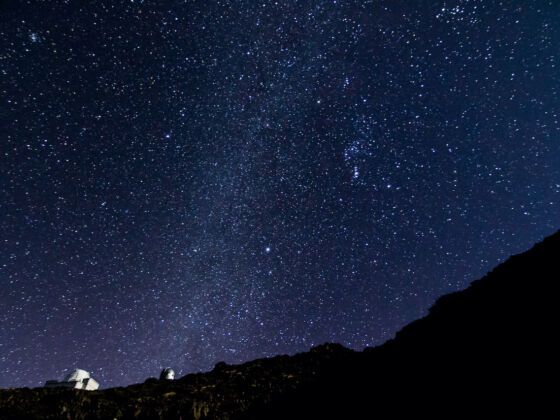If you enjoy watching the night sky in search of cool celestial phenomena, like the total lunar eclipse of May 26, 2021, you know that light pollution is a hindrance to seeing the beauty of the cosmos.
In 2016, a study entitled “World Atlas of Artificial Night Sky Brightness” found that one-third of the world’s population can’t see the Milky Way, and 80 percent is affected by light pollution. This has more consequences than some of us realize. Light pollution can disrupt sleep patterns, disturb wildlife and ecosystems, and even harm human health, according to the International Dark-Sky Association.
